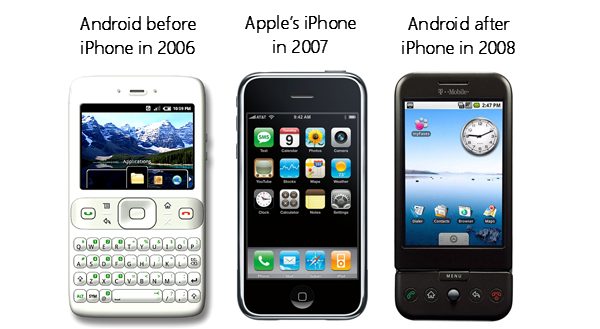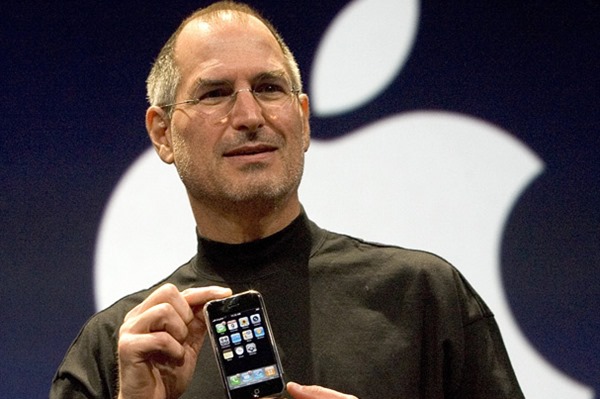It’s an accepted fact that Apple changed the face of the smartphone industry with the introduction of the iPhone back in 2007, and even though it has only been seven years, it feels as though we’ve always been tapping home screen icons and gesturing our way through interfaces. Not only did the iPhone completely turn the market on its head, but Google’s in-development Android interface – which didn’t, at the time of the Apple smartphone’s announcement, support touch input – also had to be completely re-thought.
Before the iPhone burst onto the scene, Android devices looked all set to take on a BlackBerry-esque form factor, with the front part of each handset sharing half of the available space with a physical, qwerty keyboard. But with this intriguing new handset being clutched by a very satisfied Steve Jobs back in ’07, Google quickly acknowledged that it needed to move with the times – something, incidentally, that BlackBerry didn’t see until it was too late.

With the ongoing Apple vs. Samsung court battle in full flow, new documents have come to light amid the case that confirm that Android was not – initially, at least – intended to harness the touch-based environment. The court document states that Android "was designed with the presence of discrete physical buttons as an assumption," although does go on to note that there was "nothing fundamental in the product’s architecture that prevents the support of touchscreen in the future."
So, simply put, Google didn’t initially intend to support a touchscreen interface, but given the make-up of the firmware, there was also no reason why it wouldn’t be able to do so with a little tweaking. As we all now know, the rest is history, with the search giant spending the next year developing touch-based Android for general release in the September of 2008.

The current Apple-Samsung court case focuses on patents pertaining to Apple’s iOS software, which, it is claimed, Samsung has infringed upon. However, given that Google is the company behind the vast majority of software running on the Korean company’s devices, it was somewhat inevitable that the search giant would be drafted into proceedings at one point or another.
The case, overseen once again by Judge Lucy Koh in California, continues, and we’ll be sure to let you in on any interesting developments moving forward, so stay tuned!
You may also like to check out:
You can follow us on Twitter, add us to your circle on Google+ or like our Facebook page to keep yourself updated on all the latest from Microsoft, Google, Apple and the Web.

